Russian oligarch Vladimir Potanin’s ex-wife can sue him for a slice of his multi-billion fortune, the Court of Appeal has ruled.
The legal battle between Natalia Potanina and the sanctioned businessman, who is estimated to be worth around £15.7 billion ($20billion), started in England in 2019.
In the latest stage of proceedings, she asked the Court of Appeal to rule that her financial claim could be heard in England after a High Court judge had previously dismissed her case.
Mrs Potanina wants to bring a claim for financial relief following their formal divorce in 2014, which includes a claim for half of the value of her ex-husband’s ultimate beneficial interest in shares in Russian metals and mining firm Nornickel.
Potanina is also seeking half of any dividends paid to Potanin since 2014 and a high-end Russian property, known as The Autumn House, on which they spent around £111million ($150 million).
Her lawyers say following the divorce she received only £30.9million ($41.5 million) – less than one per cent of the couple’s total assets.
Lawyers for the chief executive of Norilsk Nickel, the world’s largest palladium producer and a major producer of refined nickel, opposed the appeal, saying his ex-wife had received around £63million ($84 million).
They also argued Mrs Potanina had no connection to England.
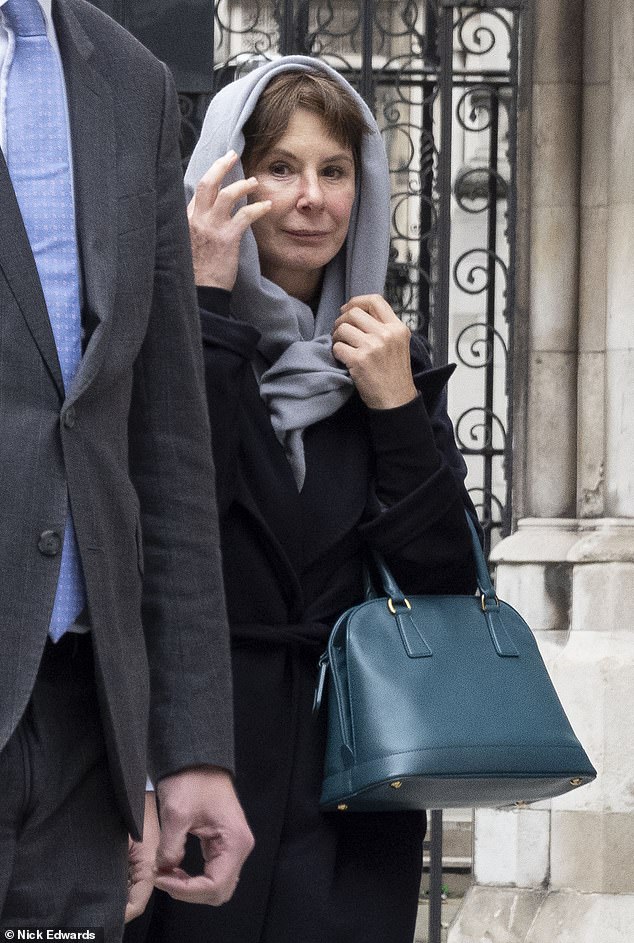
The Supreme Court was told that Mrs Potanina (pictured in 2019) wants half of the value of his shares in mining firm Norilsk Nickel, half the dividends on the shares since 2014, and half the value of a Russian property known as The Autumn House
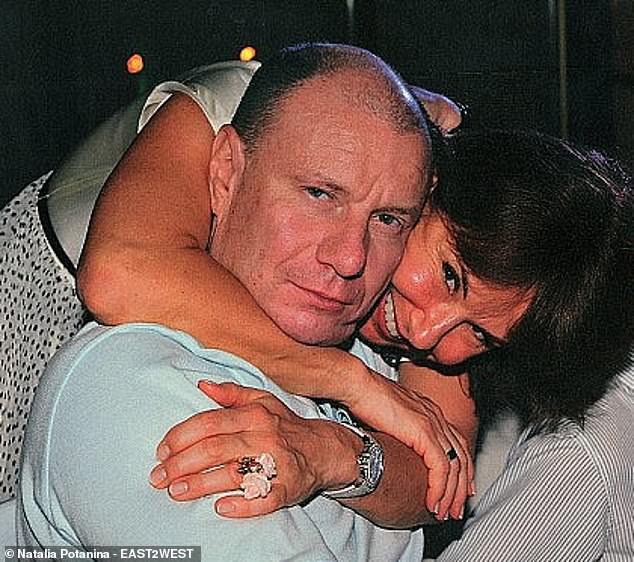
It has now been ruled Russian oligarch Vladimir Potanin’s ex wife can sue him for a slice of his multi-billion pound stake in Nornickel, the Court of Appeal has ruled (Pictured: Vladimir Putin and Natalia Potanina)
In a July hearing, her legal team said that she had earned her share of the family’s wealth after years of marriage as well as being the ‘main carer’ for the three children the two have.
Originally, London’s High Court rejected Potanina’s bid to bring a claim, with a judge saying that if her claim was allowed to proceed ‘then there is effectively no limit to divorce tourism’.
But the Court of Appeal overturned that decision today.
‘There was evidence before the court … that the wife had very largely severed her ties with Russia. Her connection to her former home country was increasingly tenuous,’ the court ruling said.
‘The discrepancy between her award of the marital assets and the husband’s retained share was significant; the discrepancy between what she had recovered in Russia compared with what she would have recovered had the case been heard in this jurisdiction was equally significant.’
Lord Justice Moylan, Lady Justice Falk and Lord Justice Cobb also found the ex-wife would likely be able to argue she is or was “fully entitled” to a wide range of financial relief consequent upon divorce, without any discount or special factor limiting her claim’.
Mr Potanin and Mrs Potanina wed in Russia in 1983, where they lived throughout their married life, and have three adult children.
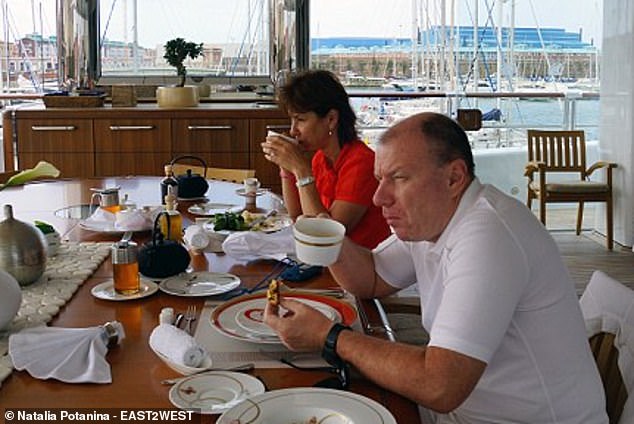
Mr Potanin claims the pair separated in 2007, with a Russian court granting a divorce in 2014. But Mrs Potanina argues that they did not separate until 2013 when their marriage ‘ended suddenly’. Pictured: The couple on their yacht Anastasia – named after their daughter – in 2010
The businessman claims the couple separated in 2007, with a Russian court granting a divorce in 2014, but his ex-wife argues they did not separate until 2013.
In June 2022, Mr Potanin, who was then described as Russia’s second richest man and owner of conglomerate Interros, was hit with UK sanctions following the Russian invasion of Ukraine.
The most recent ruling comes after the case had spent years in UK courts, with Mrs Pontanina’s case first being dismissed in 2019. However, this was overturned by the Court of Appeal in 2021.
At the time, appeal judges were told Mrs Potanina was seeking around £5 billion from her ex-husband following the breakdown of their marriage.
Mr Potanin then took the case to the Supreme Court, which in January last year ruled with a three-to-two majority in his favour, and sent the case back to the Court of Appeal for reconsideration.
At a July hearing, Mrs Potanina’s barrister Charles Howard KC said Mr Justice Cohen had been ‘inconsistent and illogical’ in the way he dealt with Mrs Potanina’s connection with England.
He said the judge had fallen into Mr Potanin’s trap of repeatedly saying his ex-wife was ‘a divorce tourist’.
In written submissions, Lord Faulks KC, for Mr Potanin, had said: ‘These former spouses had no connection with this jurisdiction during the marriage and the wife had only recent and modest connections when she applied for leave.’
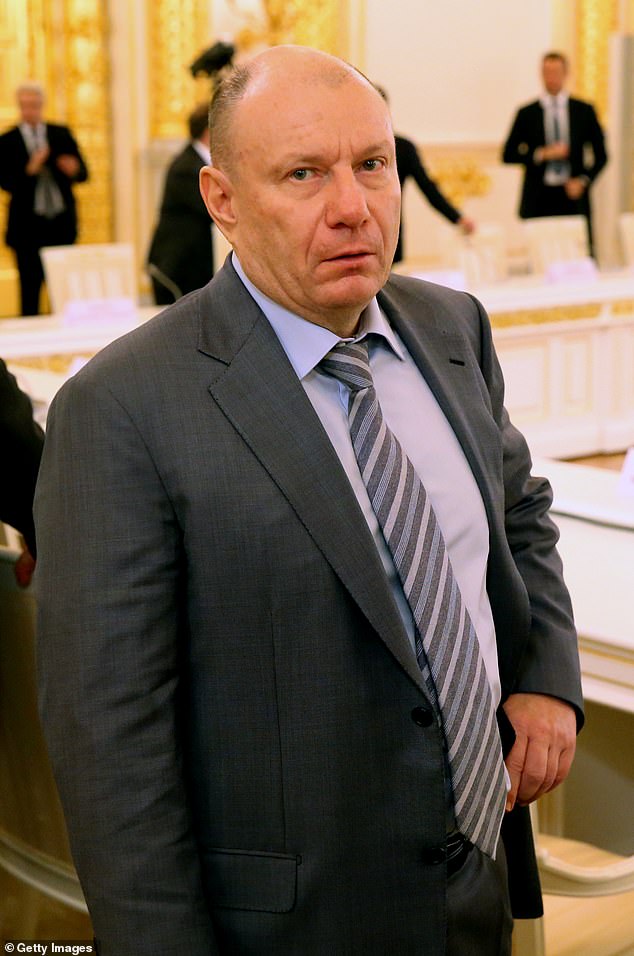
Originally, London’s High Court rejected Potanina’s bid to bring a claim, with a judge saying that if her claim was allowed to proceed ‘then there is effectively no limit to divorce tourism. Today the Court of Appeal overturned this decision
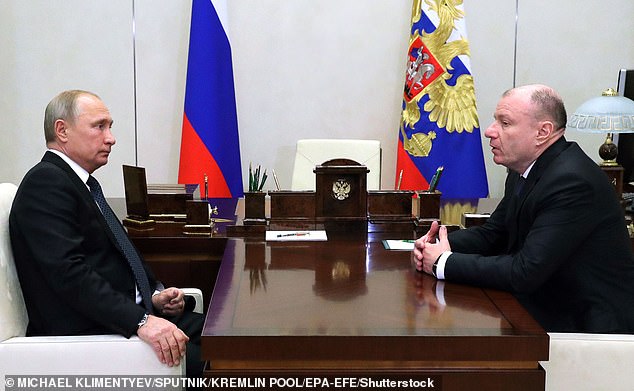
Russian President Vladimir Putin (left) meets with Vladimir Potanin (right) in the residence in Novo-Ogaryovo outside Moscow, Russia, 10 December 2018
In a written judgment, Lord Justice Cobb said that he believed the judge was ‘wrong’ and that he was ‘satisfied’ that Mrs Potanina ‘had substantial ground’ to pursue her claim in England.
In response to the ruling, Frances Hughes, from Hughes Fowler Carruthers, which represents Mrs Potanina, said: ‘The decision of the Court of Appeal is a second vindication of our client in making her application in 2019.
‘Our client is grateful for the consideration given by the court to her case and is delighted that the Court of Appeal has recognised, for the second time, the merits of her application.
‘She very much hopes that her case can now be resolved and can be concluded without further delay’.